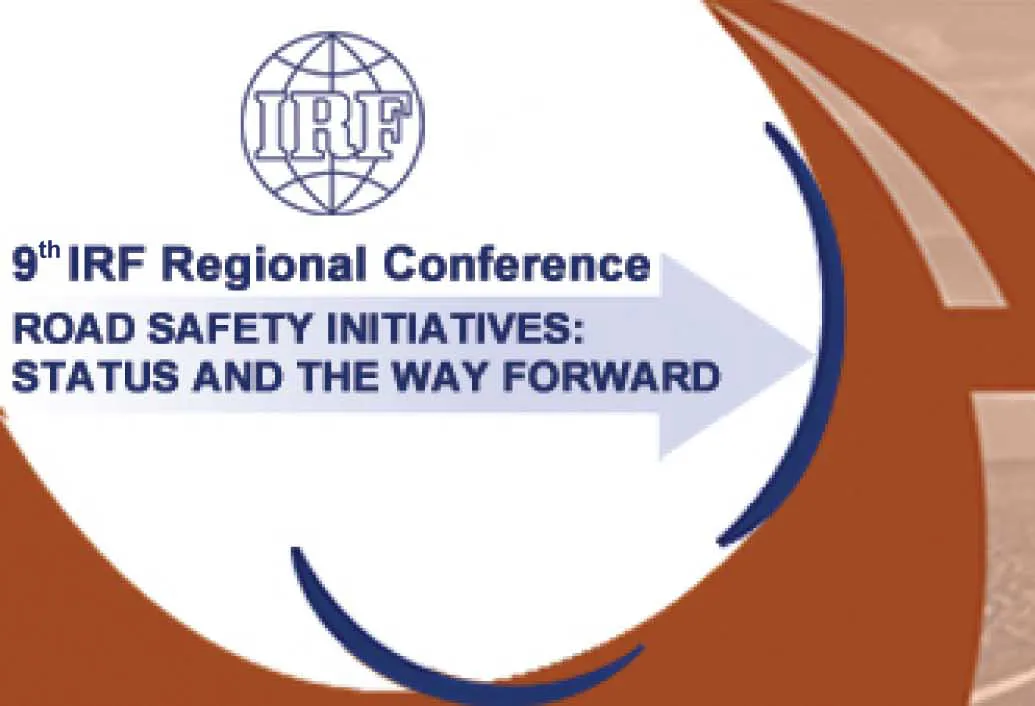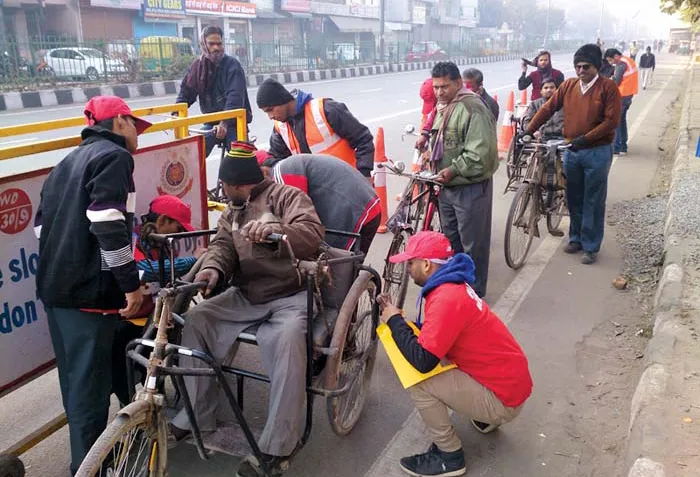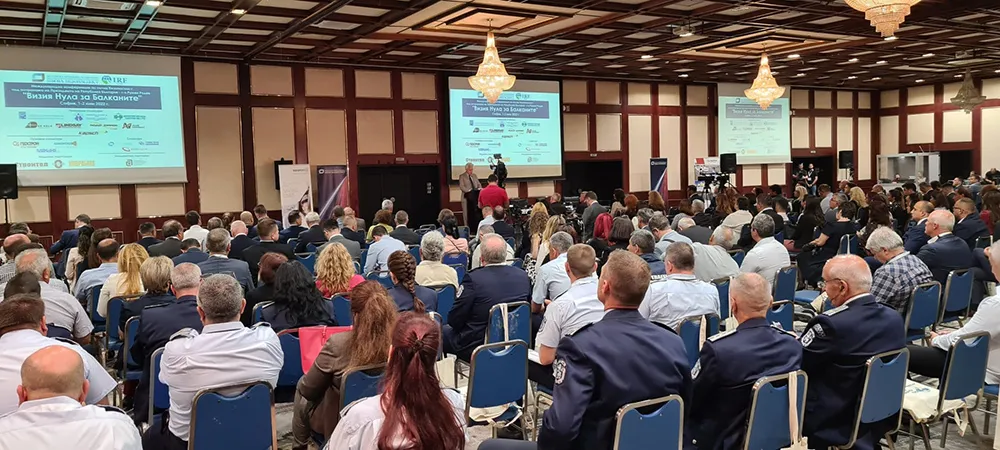The IRF Geneva said that India has the dubious distinction of claiming the highest number of fatalities by road crashes. More than 10% of road-related deaths occur in India alone, and this poses a serious challenge, being the major killer of young and productive lives.
While India’s infrastructure programme is being lauded all over the world and high rate of growth has been achieved for the 1.25 billion strong democracy, a significant 3% of the GDP is lost every year due to the uncontrolled and unmanaged
July 7, 2015
Read time: 4 mins

The 1201 IRF Geneva said that India has the dubious distinction of claiming the highest number of fatalities by road crashes. More than 10% of road-related deaths occur in India alone, and this poses a serious challenge, being the major killer of young and productive lives.
While India’s infrastructure programme is being lauded all over the world and high rate of growth has been achieved for the 1.25 billion strong democracy, a significant 3% of the GDP is lost every year due to the uncontrolled and unmanaged road safety issues. The problem is, no doubt, a huge one and only a multi-pronged approach can show results in the terms of abatement of this menace. The 2nd Global High Level Ministerial Meeting on Road Safety (after Moscow in 2009) is scheduled to be held in Brasilia in November 2015. However, the World Health Organization (WHO) (2013) reported that 50% of the countries in the world do not as yet have a road safety action plan with time-bound measurable targets.
The Ninth IRF Regional Conference on 'Road Safety Initiatives: Status and Way Forward' to be held in New Delhi, India on 5-6 October 2015 aims to take stock of the situation in States across the country and to build up a realistic agenda for further actions required to achieve the goals of the 'UN Decade of Action'. Infrastructure alone cannot deliver total safety on roads. Along with legal and enforcement systems, civil society also needs to own the efforts for achieving the targets set to free society of the trauma caused by road crashes. While an investment of US$1 trillion targeted for infrastructure during the 12th Plan will provide huge opportunities, the aim should be to meet the infrastructure requirements of all road users, to deliver true safety.
The Government of India’s initiatives on various fronts, such as the introduction of the Road Transport & Safety Bill in Parliament, funding of road safety projects under CSR, 100% tax exemptions for contribution to road safety projects and several other road safety issues, are contributing to the containment of the socio-technical problems, with the participation of all. Road traffic crashes and injuries can be prevented if the policies and programmes can be implemented more effectively and efficiently. For this, good quality data is the foundation for any targeted road safety approach.
The Ninth Regional Conference is going to be a common platform for State and Central Governments as well as Civil Society to share their success stories and help chalk out the Way Forward for the next five years of the Decade of Action in terms of:
• Initiatives across the Board - Engineering, Education, Enforcement
• Technology Support for Road Safety
• In-Vehicle Safety and Standardisation
• Trauma Care and Rehabilitation System
• Road Safety Management Capacity
• Crash Data and Monitoring & Evaluation
• Vehicle Inspection & Maintenance Regime
• Safe Infrastructure for all Road Users
• Community Participation in Road Safety
• Sustainable Funding for Road Safety
The regional conference is supported by all the three concerned ministries – Ministry of Road Transport & Highways (MoRT&H), Ministry of Urban Development (MoUD) and Ministry of Rural Development (MoRD) – linked to road infrastructure and transportation across the country and urban areas. As a result, the Conference is likely to have the participation of all state and central government departments, state transport corporations, urban/municipal authorities/corporations, engineering contractors and consultants, road signage, lighting and other safety furniture companies, intelligent transport & communication technology suppliers, road and transport researchers, and academicians dealing with road safety issues. This wide participation will provide opportunities for business and networking and also deliberation on state-of-the-art practices of both the developed and developing world.
While India’s infrastructure programme is being lauded all over the world and high rate of growth has been achieved for the 1.25 billion strong democracy, a significant 3% of the GDP is lost every year due to the uncontrolled and unmanaged road safety issues. The problem is, no doubt, a huge one and only a multi-pronged approach can show results in the terms of abatement of this menace. The 2nd Global High Level Ministerial Meeting on Road Safety (after Moscow in 2009) is scheduled to be held in Brasilia in November 2015. However, the World Health Organization (WHO) (2013) reported that 50% of the countries in the world do not as yet have a road safety action plan with time-bound measurable targets.
The Ninth IRF Regional Conference on 'Road Safety Initiatives: Status and Way Forward' to be held in New Delhi, India on 5-6 October 2015 aims to take stock of the situation in States across the country and to build up a realistic agenda for further actions required to achieve the goals of the 'UN Decade of Action'. Infrastructure alone cannot deliver total safety on roads. Along with legal and enforcement systems, civil society also needs to own the efforts for achieving the targets set to free society of the trauma caused by road crashes. While an investment of US$1 trillion targeted for infrastructure during the 12th Plan will provide huge opportunities, the aim should be to meet the infrastructure requirements of all road users, to deliver true safety.
The Government of India’s initiatives on various fronts, such as the introduction of the Road Transport & Safety Bill in Parliament, funding of road safety projects under CSR, 100% tax exemptions for contribution to road safety projects and several other road safety issues, are contributing to the containment of the socio-technical problems, with the participation of all. Road traffic crashes and injuries can be prevented if the policies and programmes can be implemented more effectively and efficiently. For this, good quality data is the foundation for any targeted road safety approach.
The Ninth Regional Conference is going to be a common platform for State and Central Governments as well as Civil Society to share their success stories and help chalk out the Way Forward for the next five years of the Decade of Action in terms of:
• Initiatives across the Board - Engineering, Education, Enforcement
• Technology Support for Road Safety
• In-Vehicle Safety and Standardisation
• Trauma Care and Rehabilitation System
• Road Safety Management Capacity
• Crash Data and Monitoring & Evaluation
• Vehicle Inspection & Maintenance Regime
• Safe Infrastructure for all Road Users
• Community Participation in Road Safety
• Sustainable Funding for Road Safety
The regional conference is supported by all the three concerned ministries – Ministry of Road Transport & Highways (MoRT&H), Ministry of Urban Development (MoUD) and Ministry of Rural Development (MoRD) – linked to road infrastructure and transportation across the country and urban areas. As a result, the Conference is likely to have the participation of all state and central government departments, state transport corporations, urban/municipal authorities/corporations, engineering contractors and consultants, road signage, lighting and other safety furniture companies, intelligent transport & communication technology suppliers, road and transport researchers, and academicians dealing with road safety issues. This wide participation will provide opportunities for business and networking and also deliberation on state-of-the-art practices of both the developed and developing world.








